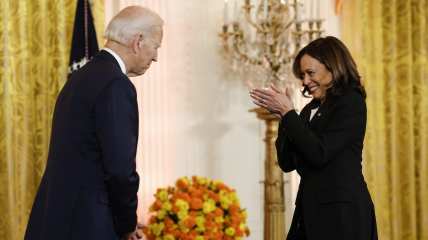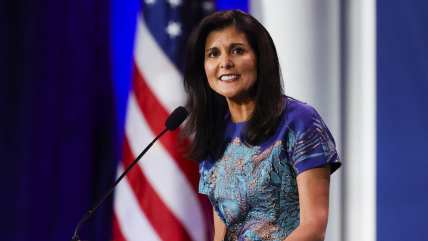Jimmy Carter, 39th US president, enters hospice care at home
Carter “decided to spend his remaining time at home with his family and receive hospice care instead of additional medical intervention.”
Former President Jimmy Carter, who at 98 years old is the longest-lived American president, has entered home hospice care in Plains, Georgia, a statement from The Carter Center confirmed Saturday.
After a series of short hospital stays, the statement said, Carter “decided to spend his remaining time at home with his family and receive hospice care instead of additional medical intervention.”
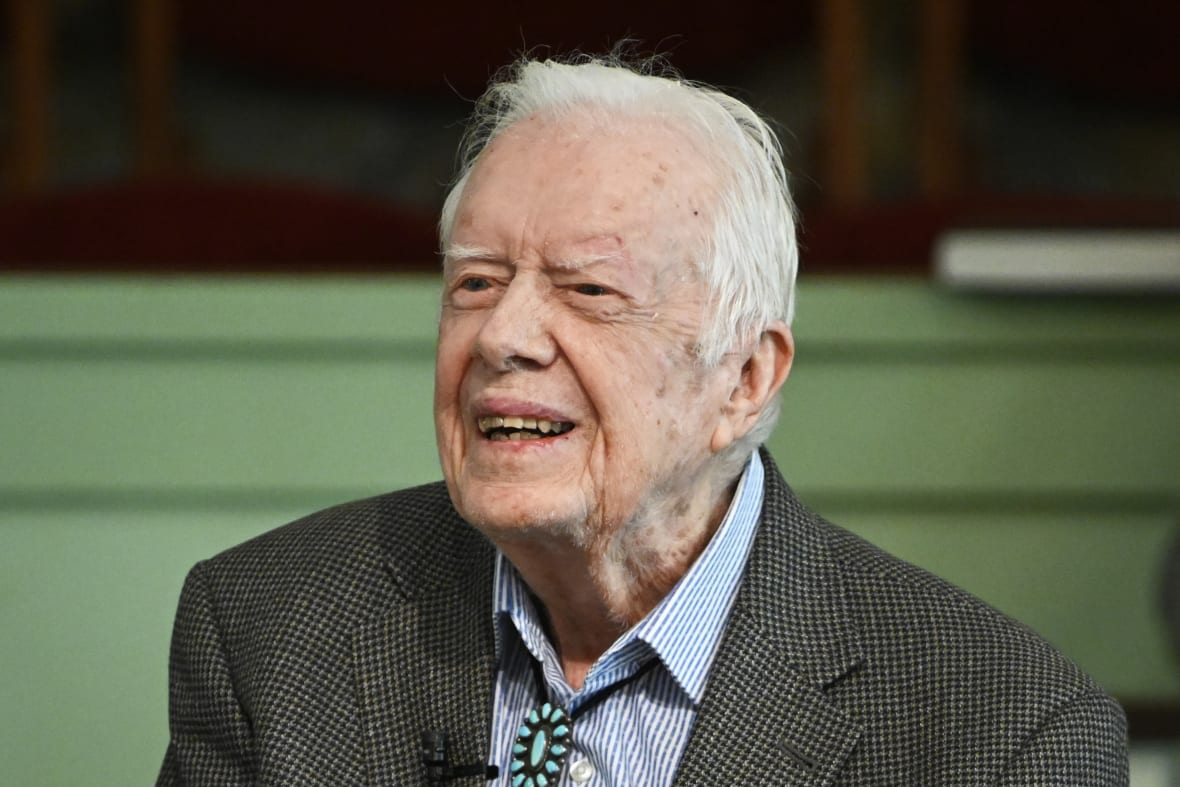
The statement said the 39th president has the full support of his medical team and family, which “asks for privacy at this time and is grateful for the concern shown by his many admirers.”
Carter was a little-known Georgia governor when he began his bid for the presidency ahead of the 1976 election. He went on to defeat then-President Gerald R. Ford, capitalizing as a Washington outsider in the wake of the Vietnam War and the Watergate scandal that drove Richard Nixon from office in 1974.
Carter served a single, tumultuous term and was defeated by Republican Ronald Reagan in 1980, a landslide loss that ultimately paved the way for his decades of global advocacy for democracy, public health and human rights via The Carter Center.
The former president and his wife, Rosalynn, 95, opened the center in 1982. His work there garnered a Nobel Peace Prize in 2002.
Jason Carter, the couple’s grandson who now chairs The Carter Center governing board, said Saturday in a tweet that he “saw both of my grandparents yesterday. They are at peace and—as always—their home is full of love.”
Carter, who has lived most of his life in Plains, traveled extensively into his 80s and early 90s, including annual trips to build homes with Habitat for Humanity and frequent trips abroad as part of the Carter Center’s election monitoring and its effort to eradicate the Guinea worm parasite in developing countries. But the former president’s health has declined over his 10th decade of life, especially as the coronavirus pandemic limited his public appearances, including at his beloved Maranatha Baptist Church where he taught Sunday School lessons for decades before standing-room-only crowds of visitors.
In August 2015, Carter had a small cancerous mass removed from his liver. The following year, Carter announced that he needed no further treatment, as an experimental drug had eliminated any sign of cancer.
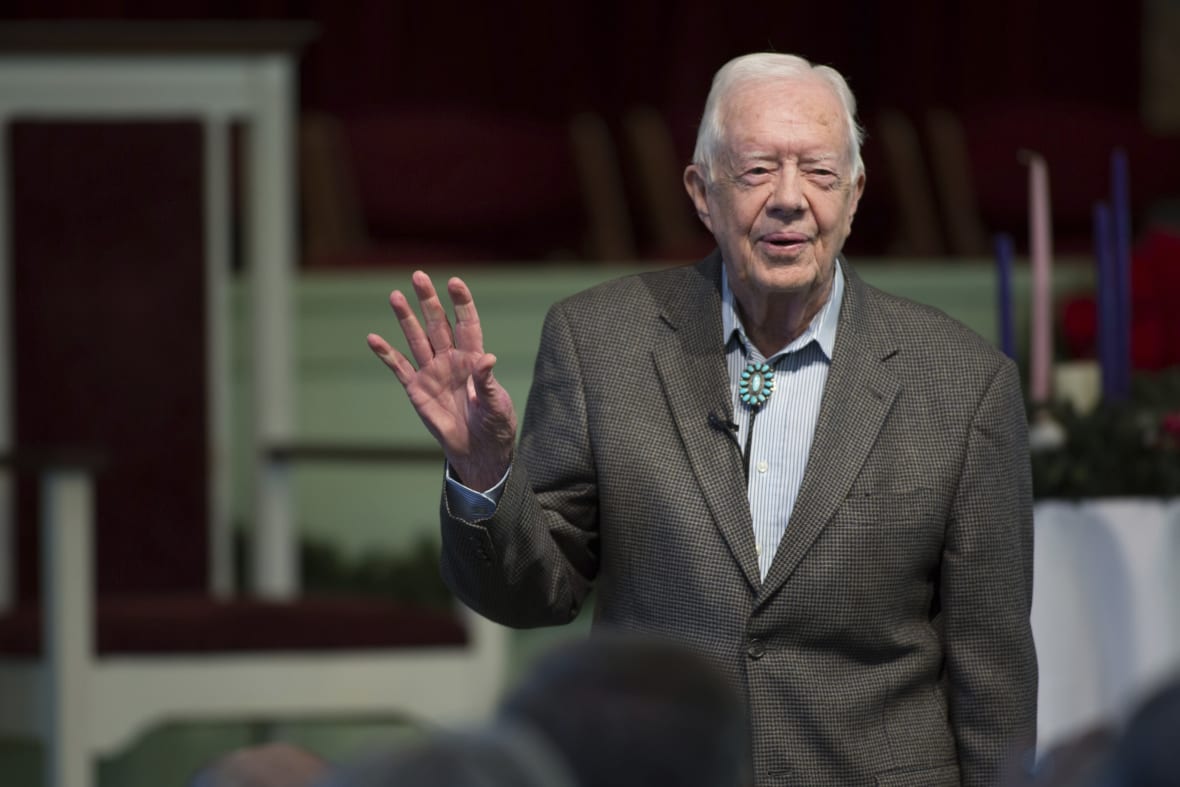
Carter celebrated his most recent birthday in October with family and friends in Plains, the tiny town where he and Rosalynn were born in the years between World War I and the Great Depression.
The Carter Center last year marked 40 years of promoting its human rights agenda.
The Center has been a pioneer of election observation, monitoring at least 113 elections in Africa, Latin America, and Asia since 1989. In perhaps its most widely hailed public health effort, the organization recently announced that only 14 human cases of Guinea worm disease were reported in all of 2021, the result of years of public health campaigns to improve access to safe drinking water in Africa.
That’s a staggering drop from when The Carter Center began leading the global eradication effort in 1986, when the parasitic disease infected 3.5 million people. Carter once said he hoped to live longer than the last Guinea worm parasite.
Carter was born Oct. 1, 1924, to a prominent family in rural south Georgia. He went on to the U.S. Naval Academy during World War II and pursued a career as a Cold War Naval officer before returning to Plains, Georgia, with Rosalynn and their young family to take over the family peanut business after Earl Carter’s death in the 1950s.
A moderate Democrat, the younger Carter rapidly climbed from the local school board to the state Senate and then the Georgia governor’s office. He began his White House bid as an underdog with a broad smile, outspoken Baptist mores and policy plans reflecting his education as an engineer. He connected with many Americans because of his promise not to deceive the American people after Nixon’s disgrace and U.S. defeat in southeast Asia.
“If I ever lie to you, if I ever make a misleading statement, don’t vote for me. I would not deserve to be your president,” Carter said often as he campaigned.
Carter, who came of age politically during the civil rights movement, was the last Democratic presidential nominee to sweep the Deep South, before the region shifted quickly to Reagan and the Republicans in subsequent elections.
He governed amid Cold War pressures, turbulent oil markets and social upheaval over racism, women’s rights and America’s global role.
Carter’s foreign policy wins included brokering Mideast peace by keeping Egyptian President Anwar Sadat and Israeli Prime Minister Menachem Begin at the bargaining table for 13 days in 1978. That Camp David experience inspired the post-presidential center where Carter would establish so much of his legacy. At home, Carter partially deregulated the airline, railroad and trucking industries and established the departments of Education and Energy, and the Federal Emergency Management Agency. He designated millions of acres in Alaska as national parks or wildlife refuges. He appointed a then-record number of women and non-whites to federal posts. He never had a Supreme Court nomination, but he elevated civil rights attorney Ruth Bader Ginsburg to the nation’s second highest court, positioning her for a promotion in 1993.
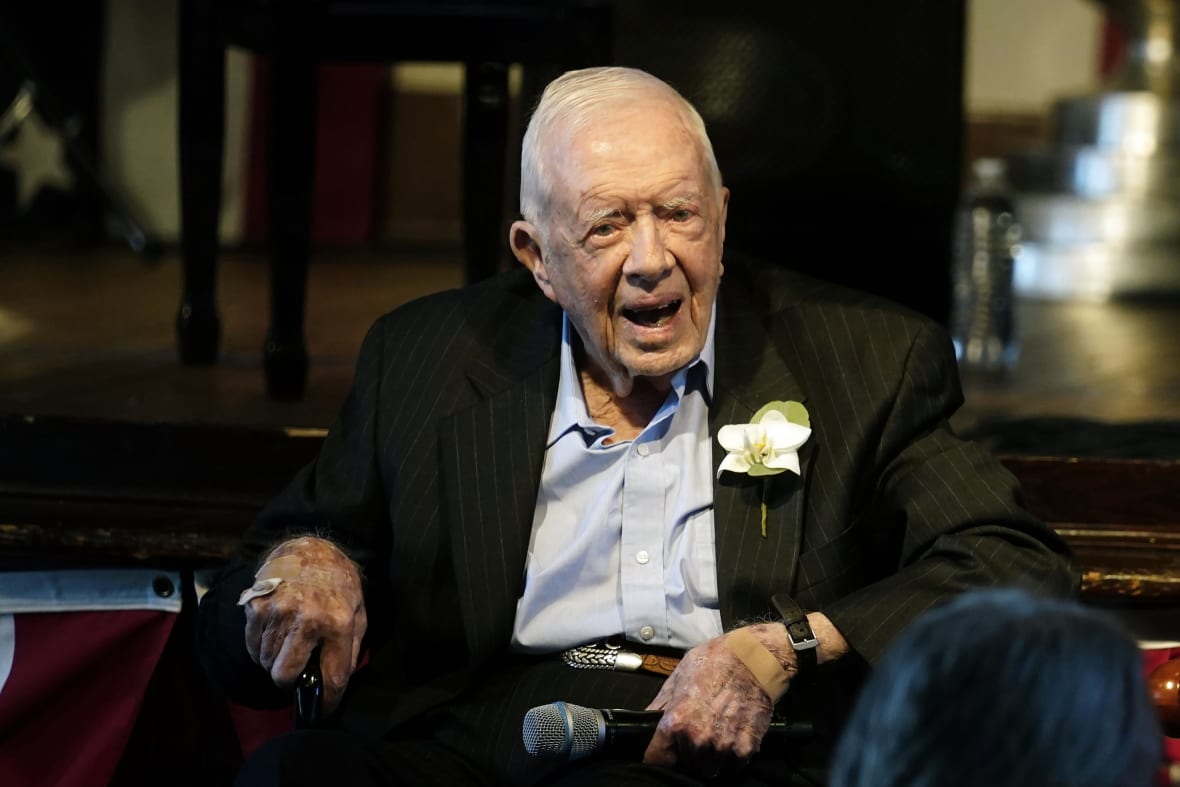
Carter also built on Nixon’s opening with China, and though he tolerated autocrats in Asia, pushed Latin America from dictatorships to democracy.
Yet Carter’s electoral coalition splintered under double-digit inflation, gasoline lines and the 444-day hostage crisis in Iran. His bleakest hour came when eight Americans died in a failed hostage rescue in April 1980, helping to ensure his landslide defeat.
For years after his loss, Carter largely receded from electoral politics. Democrats were hesitant to embrace him. Republicans made him a punchline, caricaturing him as a hapless liberal. In reality, Carter governed more as a technocrat, more progressive on race and gender equality than he had campaigned but a budget hawk who often angered more liberal Democrats, including Ted Kennedy, the Massachusetts senator who waged a damaging primary battle against the sitting president in 1980.
Carter said after leaving office that he had underestimated the importance of dealing with Washington power brokers, including the media and lobbying forces anchored in the nation’s capital. But he insisted his overall approach was sound and that he achieved his primary objectives — to “protect our nation’s security and interests peacefully” and “enhance human rights here and abroad” — even if he fell spectacularly short of a second term.
And years later, upon his cancer diagnosis as a nonagenarian, he expressed satisfaction with his long life.
“I’m perfectly at ease with whatever comes,” he said in 2015. “I’ve had an exciting, adventurous and gratifying existence.”
TheGrio is FREE on your TV via Apple TV, Amazon Fire, Roku and Android TV. Also, please download theGrio mobile apps today!
